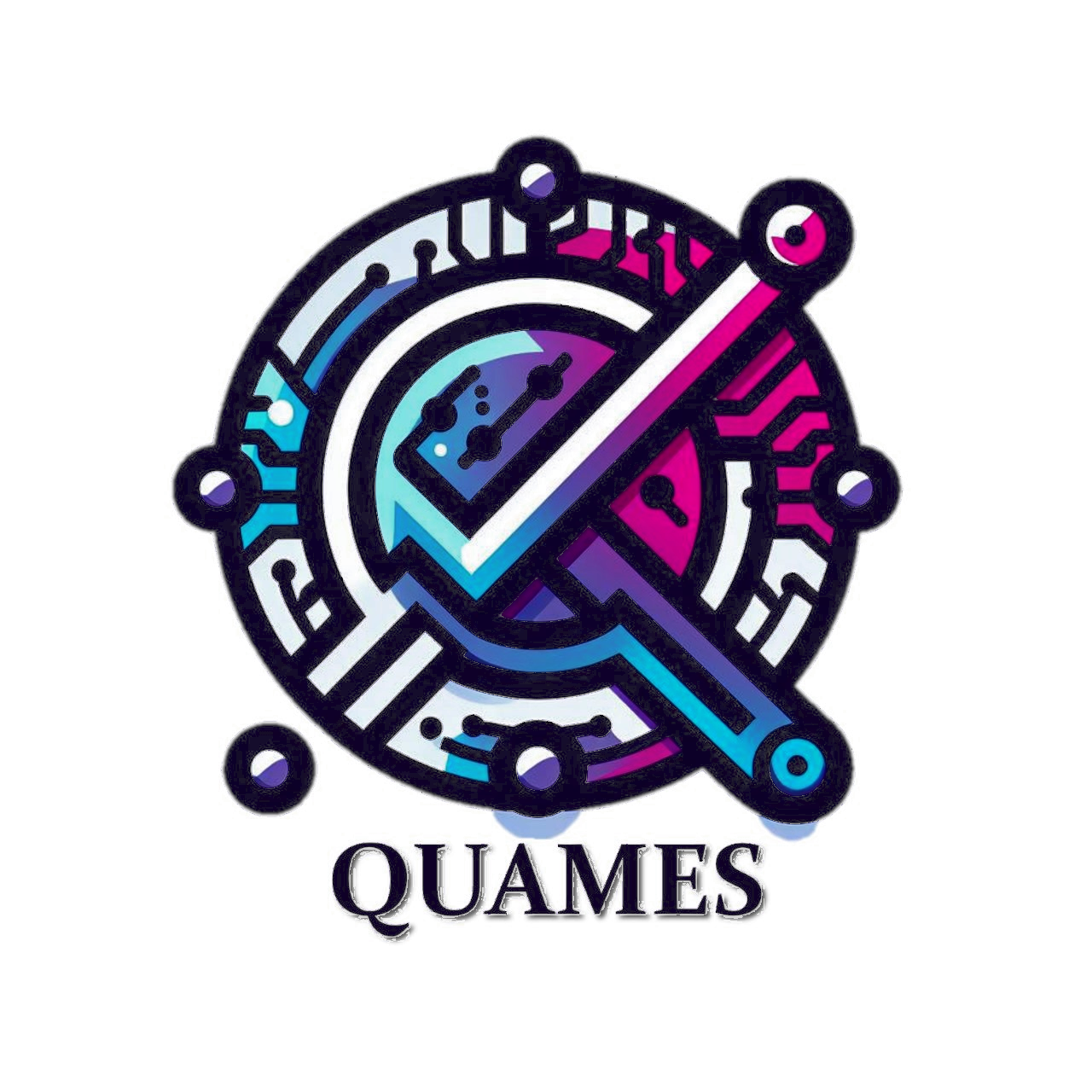QUAMES workshop 2025

6th International Workshop on Quality and Measurement of Model-Driven Software Development
(QUAMES 2025)
Co-located at ER 2025 Poitiers, France
About the workshop
The success of software development projects depends on the productivity of human resources and the efficiency of development processes to deliver high-quality products. Model-driven development (MDD) is a widely adopted paradigm that automates software generation by means of model transformations and reuse of development knowledge. The MDD advantages have motivated the emergence of several modeling proposals and MDD tools related to different application domains and stages of the development lifecycle.
In MDD, the quality of conceptual models is critical because it directly impacts the final software systems’ quality. Therefore, it is essential to evaluate conceptual models and predict the software products’ relevant characteristics. Additionally, MDD project management must be adapted to take into account that programming effort is being replaced by a modelling effort at an earlier stage. Hence, measuring models is crucial to support cost estimation and project management. Moreover, testing models are paramount to represent the exploration and calculate quality metrics (such as coverage, failures, etc.), related to developed software products.
To address these challenges, QUAMES aims to attract research on methods, procedures, techniques, and tools for measuring and evaluating the quality of conceptual models that can be used in any phase of the software development cycle. Its primary goal is to enable the development of high-quality software systems by promoting quality assurance from a modeling-based perspective.
Furthermore, considering the increasing use of AI to streamline software development or as an essential element within software products, we argue that the conceptual models could be a key element to build trust in the AI-generated software systems. Moreover, the advances in low-code and no-code platforms entail a shift towards the use of conceptual models to explain, and therefore trust, in the generated software systems. Thus, this year QUAMES is also aimed to discuss about the challenges, benefits and lessons learned from the use of conceptual modeling in AI-generated software systems.
Important dates
- Abstract deadline: 13 June 2025
- Submission deadline extended: 07 July 2025
- Paper notification: 28 July 2025
- Camera-ready submission: 18 August 2025 – STRICT
- Workshops take place on: 20th-23th October 2025
Topics
The topics of interest include (but are not limited to):
– Quality models for conceptual models
– Empirical evaluation of quality models
– Metrics, measures and measurement for conceptual models
– Defect detection in conceptual models
– Testing of conceptual models
– Model-based testing
– Case studies, experiments, and surveys of MDD projects
– No-Code/Low-Code tools for measuring conceptual models
– Tools for quality evaluation of conceptual models
– Tools for model-based testing
– Quality of conceptual models for ethics and trustworthiness
– AI for conceptual models and conceptual models for AI
– Conceptual models for safety critical systems
– Conceptual models for software quality assurance
Submissions
Participants will be invited to submit papers concerning the quality, measurement, or testing of models that can be used in MDD environments. Pieces of ongoing research work are also welcome.
Accepted papers are planned to be published in the joint workshop proceedings of the ER conference.
Papers can be accepted as full papers or short papers, with no more than 16 pages for full papers and no more than 10 pages for short papers.
Submissions to QUAMES 2025 must be formatted according to the Springer’s LNCS submission formatting guidelines (for instructions and style sheets, see https://www.springer.com/gp/computer- science/lncs/conference-proceedings-guidelines).
Papers have to be submitted in PDF format using the EasyChair submission page
https://easychair.org/conferences/?conf=er2025 track QUAMES Workshop.
All submissions will be screened by the scientific committee for their appropriateness to the workshop themes and format. Each submission will be reviewed by at least three program committee members. Authors will be guided to fit their presentations to the workshop rules. In case of inconclusive and conflicting review results, internal discussions will be held to decide upon the final acceptance or rejection of a paper.
It is mandatory that at least one author will register and present the paper during the workshop.
Organizers
Beatriz Marín – Universitat Politècnica de València, Spain
Clara Ayora – Universidad Castilla-La Mancha, Spain
Marcela Ruiz – Zurich University of Applied Sciences, Switzerland
Program committee
- Oscar Pastor – Universidad Politécnica de Valencia (Spain)
- Monique Snoeck – KU Leuven (Belgium)
- Maya Daneva – University of Twente (The Netherlands)
- Tanja Vos – Universidad Politécnica de Valencia (Spain)
- Cecilia Bastarrica – Universidad de Chile (Chile)
- Ignacio Panach – Universidad de Valencia (Spain)
- Juan Cuadrado-Gallego – University of Alcalá (Spain)
- Dominik Bork – TU Wien (Austria)
- Mehrdad Saadatmand – RISE Research Institutes of Sweden (Sweden)
- Giovanni Giachetti – Universidad Andrés Bello (Chile)
- Dietmar Winkler – Vienna University of Technology (Austria)
- Jolita Ralyté – University of Geneva (Switzerland)
- Estefania Serral – KU Leuven (Belgium)
- Rebecca Deneckere – University Paris 1 (France)
- Isabel Brito – Instituto Politecnico de Beja (Portugal)
- René Noel – Universidad de Valparaíso (Chile)
- Ignacio García – University of Castilla – La Mancha (Spain)
- Camille Salinesi – Université de Paris1 Panthéon-Sorbonne (France)
- Porfirio Tramontana – University of Napoli Federico II (Italy)
- Jose Luis de la Vara – University of Castilla – La Mancha (Spain)
- Elena Kornyshova – CNAM (France)
- Anna Rita Fasolino – – University of Napoli Federico II (Italy)
- Francisca Pérez – Universidad Politécnica de Valencia (Spain)
Previous Editions
- 1st International Workshop on Quality and Measurement of Software Model-Driven Development (Nanjing – China) – co-located with QSIC 2013 (https://ieeexplore.ieee.org/xpl/conhome/6605720/proceeding)
- 2nd International Workshop on Quality and Measurement of Software Model-Driven Development (Dallas – USA)- co-located with QSIC 2014 (https://ieeexplore.ieee.org/xpl/conhome/6954738/proceeding?isnumber=6958368&sortType=vol-only-seq&pageNumber=1)
- 3rd International Workshop on Quality and Measurement of Software Model-Driven Development (Barcelona – Spain) – co-located with RCIS 2022 (https://ceur-ws.org/Vol-3144/)
- 4th International Workshop on Quality and Measurement of Software Model-Driven Development (Lisbon – Portugal) – co-located with ER 2023 (https://link.springer.com/book/10.1007/978-3-031-47112-4)
-
5th International Workshop on Quality and Measurement of Software Model-Driven Development (Pittsburgh – USA) – co-located with ER 2024 (https://link.springer.com/book/10.1007/978-3-031-75599-6 website
